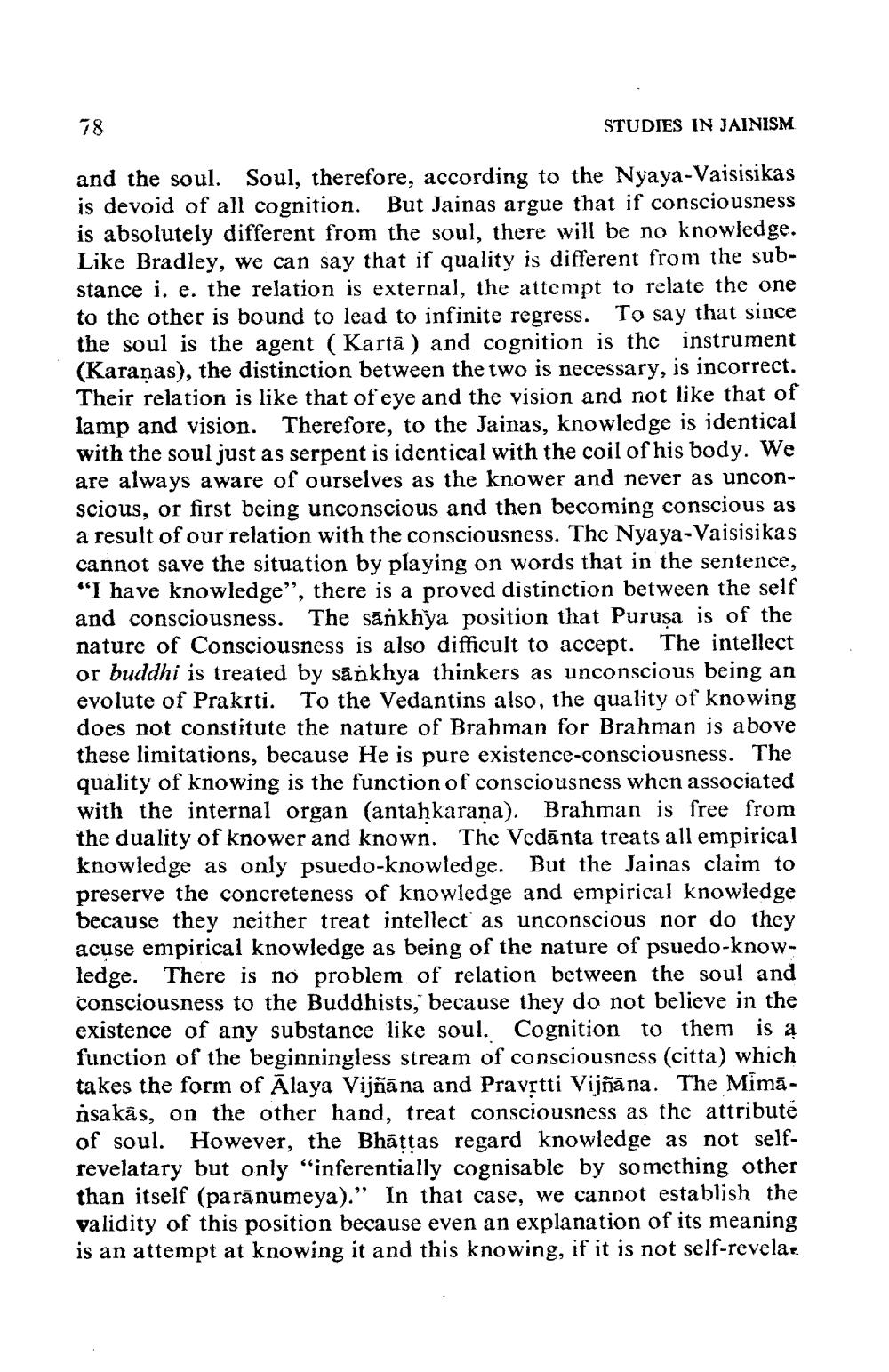________________
78
STUDIES IN JAINISM
and the soul. Soul, therefore, according to the Nyaya-Vaisisikas is devoid of all cognition. But Jainas argue that if consciousness is absolutely different from the soul, there will be no knowledge. Like Bradley, we can say that if quality is different from the substance i. e. the relation is external, the attempt to relate the one to the other is bound to lead to infinite regress. To say that since the soul is the agent ( Kartā ) and cognition is the instrument (Karaņas), the distinction between the two is necessary, is incorrect. Their relation is like that of eye and the vision and not like that of lamp and vision. Therefore, to the Jainas, knowledge is identical with the soul just as serpent is identical with the coil of his body. We are always aware of ourselves as the knower and never as unconscious, or first being unconscious and then becoming conscious as a result of our relation with the consciousness. The Nyaya-Vaisisikas cannot save the situation by playing on words that in the sentence, "I have knowledge”, there is a proved distinction between the self and consciousness. The sānkhya position that Purusa is of the nature of Consciousness is also difficult to accept. The intellect or buddhi is treated by sankhya thinkers as unconscious being an evolute of Prakrti. To the Vedantins also, the quality of knowing does not constitute the nature of Brahman for Brahman is above these limitations, because He is pure existence-consciousness. The quality of knowing is the function of consciousness when associated with the internal organ (antahkarana). Brahman is free from the duality of knower and known. The Vedānta treats all empirical knowledge as only psuedo-knowledge. But the Jainas claim to preserve the concreteness of knowledge and empirical knowledge because they neither treat intellect as unconscious nor do they acuse empirical knowledge as being of the nature of psuedo-knowledge. There is no problem of relation between the soul and consciousness to the Buddhists, because they do not believe in the existence of any substance like soul. Cognition to them is a function of the beginningless stream of consciousness (citta) which takes the form of Ālaya Vijñāna and Pravștti Vijñāna. The Mimānsakâs, on the other hand, treat consciousness as the attribute of soul. However, the Bhāttas regard knowledge as not selfrevelatary but only "inferentially cognisable by something other than itself (parānumeya).” In that case, we cannot establish the validity of this position because even an explanation of its meaning is an attempt at knowing it and this knowing, if it is not self-revela.




